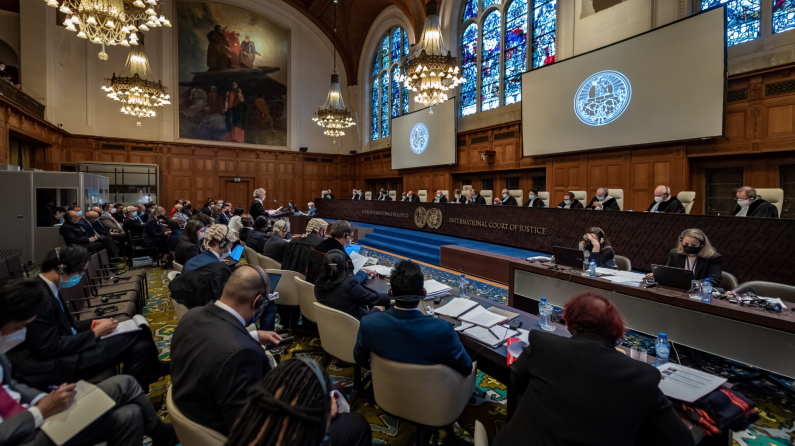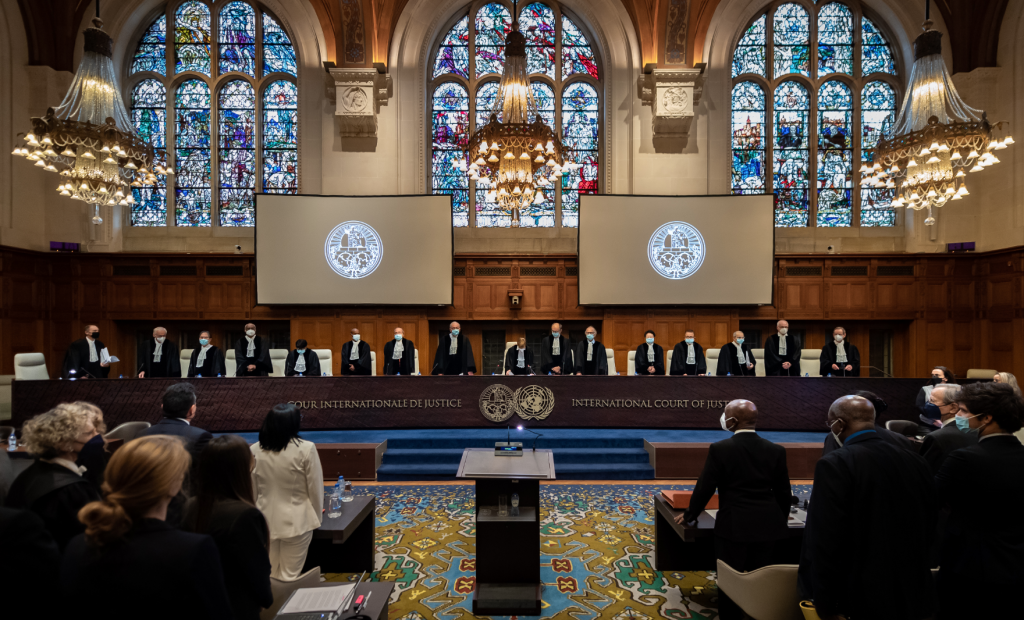
The International Court of Justice, (ICJ) today heard closing arguments from Guyana in response to Venezuela’s application for the Court to throw out the merits of Guyana’s case on the basis of admissibility.
Venezuela has argued that the Court should not entertain Guyana’s substantive application on several grounds, and one of those grounds is that Great Britain should be party to the case instead of Guyana.
Venezuela also advanced the argument in its closing that the 1899 arbitral award is invalid because fraud was committed by the United Kingdom during the arbitration.
In responding to the Venezuelan claims today, Guyana’s Counsel, Professor Phillipe Sands pointed out the inconsistencies in Venezuela’s arguments.
He said with Venezuela’s new contention that the arbitration process was corrupted, it now has the burden to prove that there was indeed corruption. The Attorney told the Court that in Venezuela’s closing argument, it failed to provide any evidence to back up its claims.
“Is the award invalid because of the conduct of any of the arbitrators and on that question, Venezuela was completely silent, its evidentiary cupboard is bare, empty. Venezuela offers no authority whatsoever for the proposition for the conduct of a party in arbitral proceedings can of itself taint an arbitral award, and we are not aware of any case that an arbitral award set aside merely because of the conduct of a party or of its counsel, what is relevant is the conduct of the arbitrators,” Professor Sands argued on behalf of Guyana.
Professor Sands said Venezuela continues to make allegations, but has failed to provide evidence to support its claims, which in itself shows that the Bolivarian Republic is clinging to straws and delaying the substantive case from being heard in a timely manner.
He said Venezuela’s persistent claims about the conduct of counsel in the arbitration is nothing but noise and should be ignored by the Court.
Venezuela, which has rejected the jurisdiction of the Court, has also argued that if the Court finds that the arbitral award is null and void, then it can claim reparations from Britain.

“With great respect this truly is an extraordinary argument, a desperate attempt to manufacture some sort of legal interest of the United Kingdom. In rendering a judgement on the validity of the arbitral award the court will not remotely have to consider the United Kingdom’s post award conduct or to rule on Venezuela supposed entitlement to reparations from the United Kingdom’s post arbitral award administration of territory awarded to it by the arbitrators,” Professor Sands further told the ICJ.
Professor Sands argued before the ICJ that Venezuela is selectively addressing issues of what the Court can and cannot address.
He said while it argued on the question of the arbitral award at length, it conveniently shied away from the question of whether the Court can make a determination over the land boundary.
“Venezuela obviously has nothing to say except its infectious approach and with its silence it concedes that the court can exercise jurisdiction over this issue, nor would there be any impediment to the court fixing the international boundary exactly the way the arbitrators did it in light of Venezuela formal agreement in 1905 and its scrupulous conformity to that boundary for more than 6o years on its own official maps demonstrate”.
Guyana’s legal team has submitted that the Court must see through Venezuela’s delaying tactics and dismiss its application, so that the substantive matter can be addressed and the controversy be settled once and for all.










You must be logged in to post a comment Login